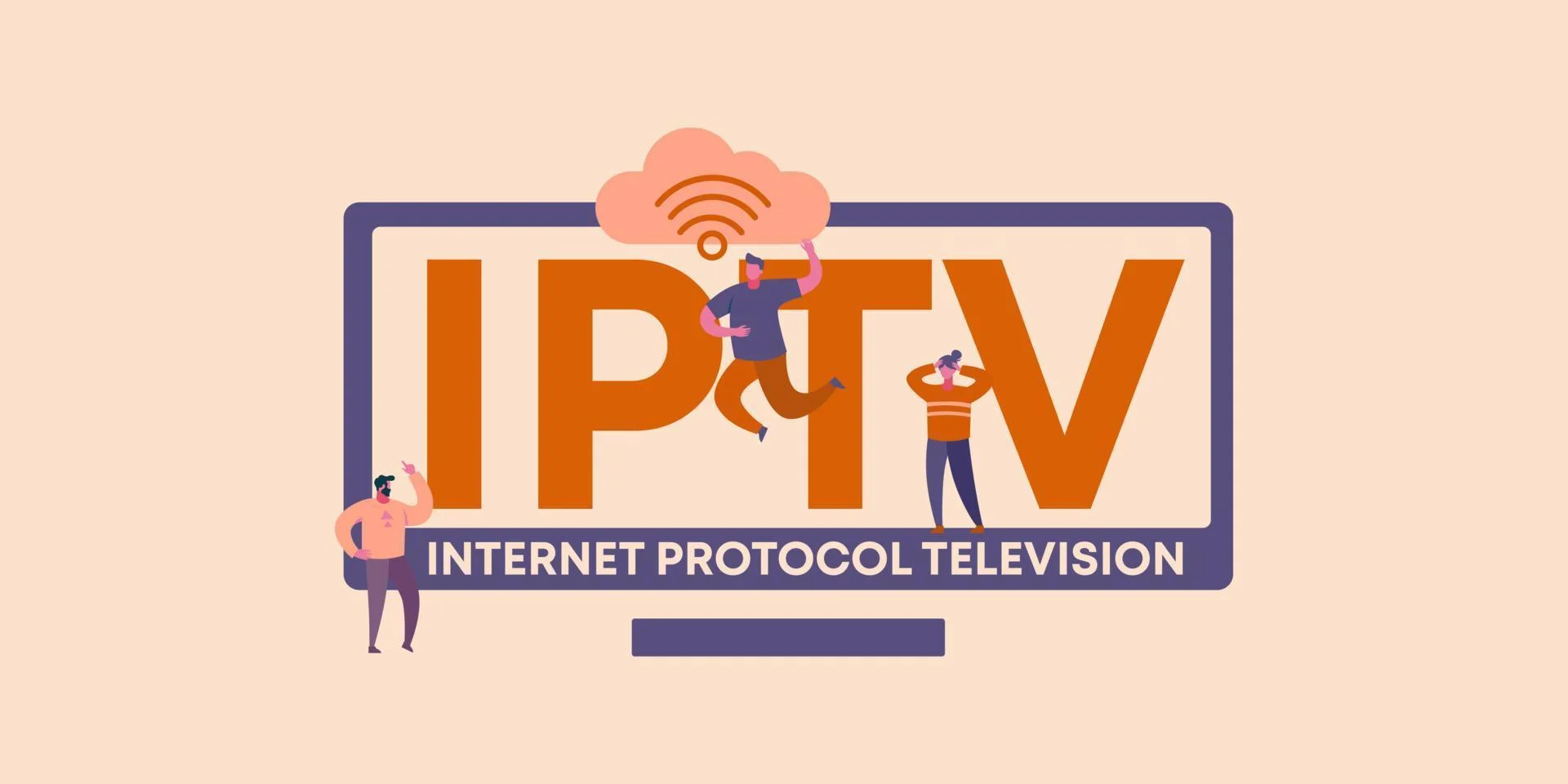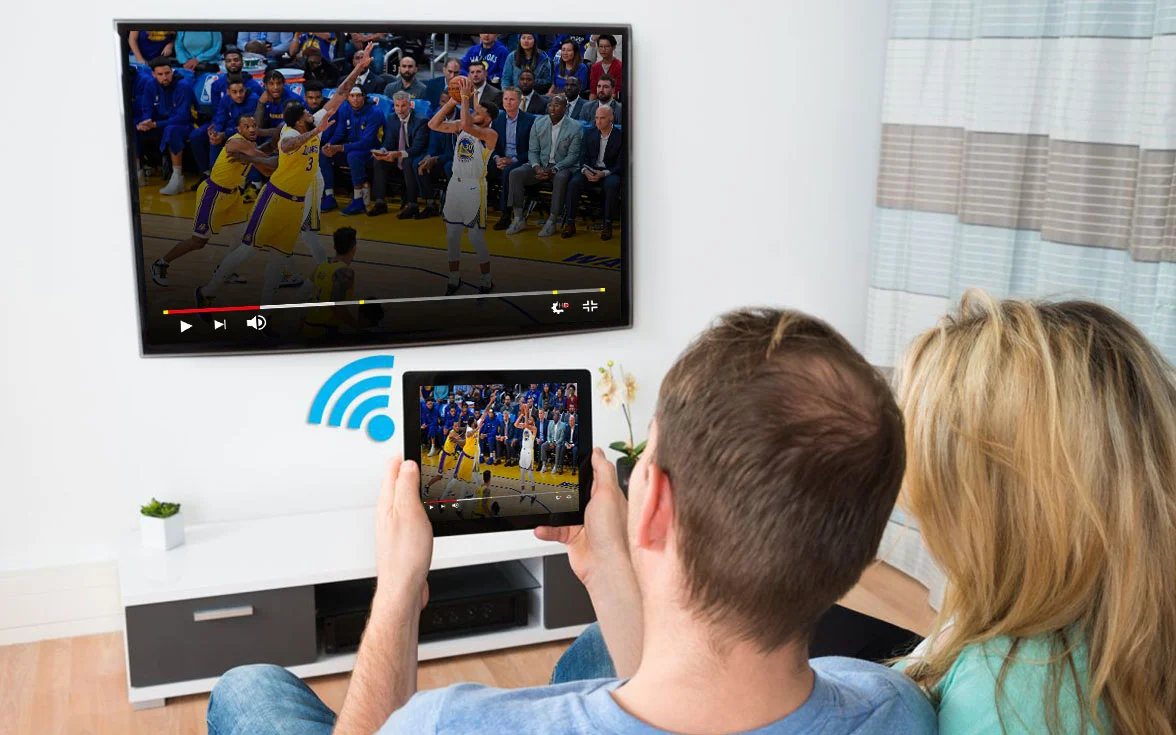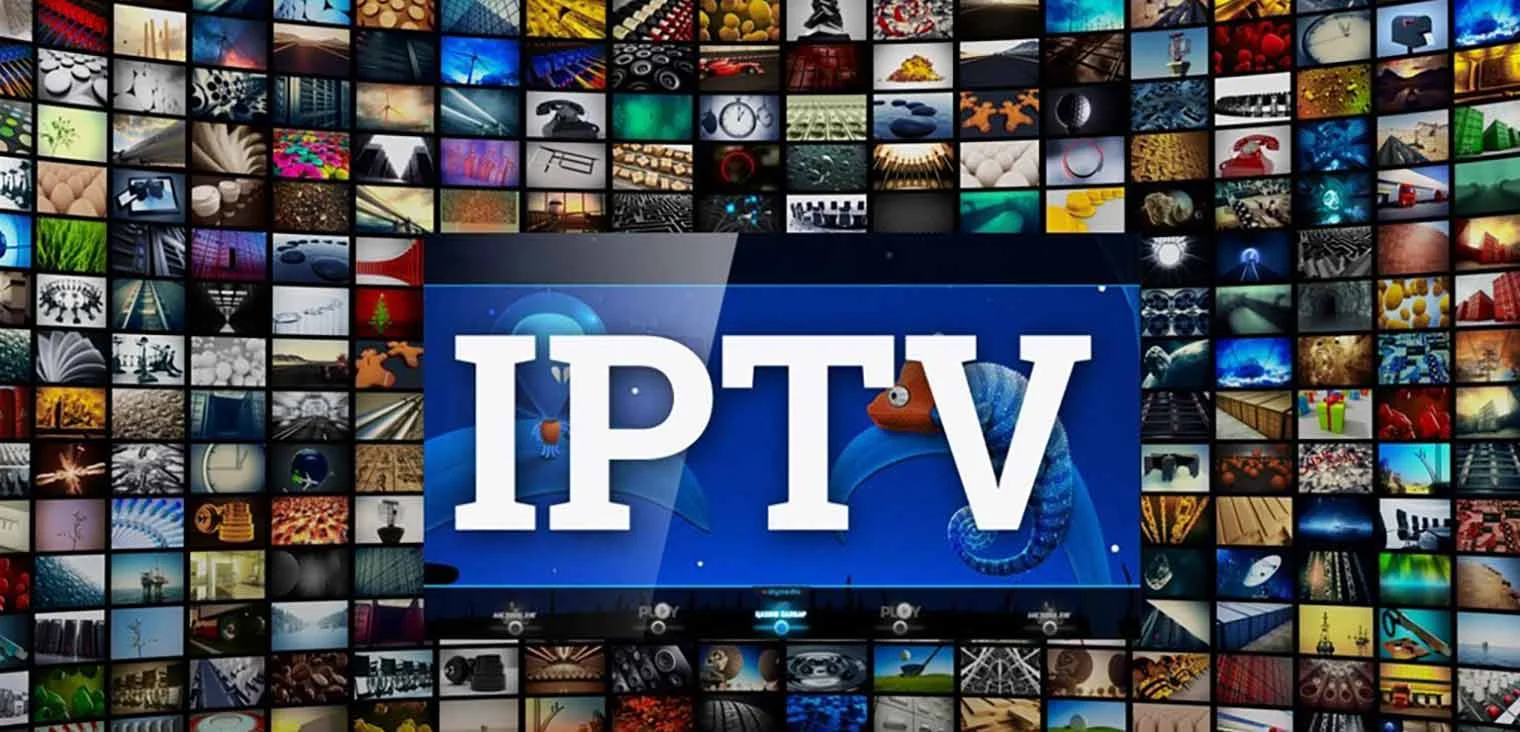IPTV Live Events: Your Ultimate Guide to Streaming Live Entertainment
Have you ever missed an important sports match because you couldn’t get to a TV in time? Or perhaps you’ve wanted to watch a live concert happening across the globe but had no way to access it? IPTV live events streaming solves these problems by bringing real-time entertainment directly to your devices. But what exactly makes IPTV the preferred choice for live event streaming in today’s digital landscape?
Internet Protocol Television (IPTV) has revolutionized how we consume live content, offering unprecedented access to sports competitions, music concerts, breaking news, and special broadcasts from around the world. Unlike traditional cable or satellite services, IPTV delivers content through internet protocols, providing greater flexibility, better quality, and often at a fraction of the cost.

In this comprehensive guide, we’ll explore everything you need to know about streaming live events through IPTV services, from the technical aspects to practical tips for getting the best viewing experience. Whether you’re a sports enthusiast, music lover, or someone who simply wants to stay connected with live happenings worldwide, this article will help you navigate the exciting world of IPTV live events.
Understanding IPTV Live Event Streaming Technology
What makes IPTV different from traditional broadcasting methods? It’s all in the delivery. Traditional TV broadcasts content through radio frequency signals, while IPTV uses internet protocols to deliver media. This fundamental difference creates numerous advantages when it comes to live event streaming.
IPTV works by breaking down video content into data packets that travel through the internet to your device, where they’re reassembled into viewable content. For live events, this happens in near real-time, with minimal delay depending on your internet connection quality. The technology behind it involves several components working together:
- Content acquisition – capturing the live event through cameras and audio equipment
- Encoding – converting the raw footage into digital formats suitable for internet transmission
- Content delivery networks (CDNs) – distributing the encoded content efficiently across servers
- Streaming protocols – managing how the content travels from servers to your device
- Player applications – software that decodes and displays the content on your screen
What’s particularly impressive about modern IPTV technology is its ability to adapt to different network conditions. Using adaptive bitrate streaming, quality IPTV services can automatically adjust video resolution based on your internet speed, ensuring continuous playback even when connection quality fluctuates. This is especially important for live events where you don’t want to miss a moment due to buffering.

The technical foundation of IPTV also allows for features that enhance the live viewing experience. Many services offer multi-angle views of sporting events, interactive statistics overlays, and even the ability to rewind live broadcasts – something impossible with traditional TV. These capabilities make IPTV with multiple connections particularly valuable for live event enthusiasts who want a more immersive and flexible viewing experience.
Understanding this technology helps explain why IPTV delivers superior live event experiences compared to conventional broadcasting methods. The digital nature of the transmission allows for higher resolution, more stable connections, and enhanced features that traditional TV simply cannot match.
Popular Types of Live Events Available Through IPTV
The variety of live events accessible through IPTV services is truly remarkable. From global sporting competitions to niche cultural performances, IPTV platforms bring an unprecedented range of live content to viewers. But what specific types of events can you expect to find?
Sports broadcasts represent perhaps the most popular category of live IPTV content. Major leagues like the NFL, NBA, Premier League, La Liga, and Formula 1 are widely available through various IPTV services. What makes sports particularly well-suited for IPTV is the global nature of fandom – supporters often live thousands of miles from their favorite teams, making internet-based broadcasting the ideal solution for access.
Beyond mainstream sports, IPTV excels at providing access to events that might not receive traditional broadcast coverage in your region. This includes:
- International cricket matches
- Rugby tournaments
- Combat sports like UFC, boxing, and wrestling
- Tennis grand slams
- Olympic games and qualifiers
- Motorsports from around the world
- Niche sporting events like darts, snooker, and extreme sports

Music concerts and festivals have also found a natural home on IPTV platforms. Major music events like Coachella, Glastonbury, and Tomorrowland often partner with streaming services to broadcast performances live. For music lovers, this means gaining access to performances that would otherwise require expensive travel and accommodations.
Cultural and entertainment events represent another significant category. Award shows like the Oscars, Grammys, and various international film festivals are regularly streamed through IPTV services. Theater performances, including Broadway shows and opera productions from prestigious venues like the Metropolitan Opera, are increasingly available through specialized IPTV channels.
News and political events round out the live content landscape. Presidential debates, election night coverage, breaking news, and special political addresses are delivered through news-focused IPTV channels, often with multiple language options and different perspective choices not available through traditional broadcasting.
The breadth of available content makes IPTV price considerations particularly attractive when compared to the combined cost of various cable packages needed to access the same range of events. This comprehensive coverage is why many viewers are making the switch to cheap IPTV solutions for their live event needs.
Benefits of Watching Live Events Through IPTV
Why are so many viewers turning to IPTV for their live event experiences? The advantages extend far beyond simple convenience, offering tangible benefits that traditional broadcasting methods simply cannot match. Let’s explore what makes IPTV particularly valuable for live event enthusiasts.
Cost-effectiveness stands out as perhaps the most compelling benefit. Cable and satellite packages that include comprehensive sports and entertainment channels can easily cost upwards of $100 monthly. In contrast, quality IPTV for cheap services typically range from $10-20 per month while offering comparable or even superior content selection. This dramatic price difference makes high-quality entertainment accessible to a much broader audience.

Flexibility represents another significant advantage. With IPTV, you’re not tied to a specific location or device. Want to start watching a football match on your living room TV, continue on your tablet during dinner, and finish on your phone in bed? IPTV makes this seamless experience possible. Many services offer IPTV multiple connections, allowing simultaneous viewing on several devices – perfect for households with diverse viewing preferences.
The global content access provided by IPTV is truly revolutionary. Geographical restrictions that limit traditional broadcasting become largely irrelevant. A sports fan in America can easily watch European football leagues, while a K-pop enthusiast in Europe can tune into live concerts from Seoul. This international reach is particularly valuable for expatriates wanting to maintain connections with events from their home countries.
Enhanced viewing features also distinguish IPTV from conventional broadcasting. Depending on the service and application, these might include:
- Multi-angle camera views for sporting events
- Interactive statistics and information overlays
- Pause and rewind capabilities for live broadcasts
- Picture-in-picture functionality
- Customizable subtitle and audio options
- Higher resolution streams (up to 4K) than many cable providers offer
The on-demand component that accompanies most IPTV services means you’re never truly “missing” a live event. If you couldn’t watch in real-time, many platforms automatically archive the content for later viewing. This feature is particularly valuable for international events that might broadcast at inconvenient hours in your time zone.
These combined benefits explain why many consumers are investigating options to buy IPTV subscription services rather than maintaining traditional cable packages, especially when their primary interest is in live events.
How to Set Up IPTV for Optimal Live Event Viewing
Setting up an IPTV system for live event viewing doesn’t need to be complicated. With the right approach, you can create a seamless viewing experience that rivals or exceeds traditional broadcasting. Let’s walk through the essential steps and considerations for optimizing your IPTV setup.
First, you’ll need to select appropriate hardware. While many devices support IPTV applications, some perform better than others for live streaming. Popular options include:
- Amazon Fire TV Stick – Affordable and powerful, the Fire Stick is among the most popular choices for IPTV. IPTV Smarters Fire TV Stick setups provide excellent performance for live events.
- Android TV Boxes – Devices running Android TV offer great flexibility and typically more processing power than streaming sticks.
- Smart TVs – Many modern TVs have built-in support for IPTV apps, eliminating the need for additional hardware.
- Smartphones and Tablets – Perfect for on-the-go viewing, most IPTV services offer mobile apps.
- Computers – Both Windows and Mac support various IPTV applications or web-based players.

Next, you’ll need to choose appropriate software. The application you use significantly impacts your viewing experience. IPTV Smarters Pro is among the most popular options due to its user-friendly interface and robust feature set. Other excellent choices include Perfect Player, TiviMate, and GSE Smart IPTV. Many services provide detailed setup guide resources to help you configure these applications properly.
Your internet connection plays a crucial role in live event streaming quality. For standard definition content, a connection of at least 5 Mbps is recommended. For HD content, aim for 10+ Mbps, while 4K streaming typically requires 25+ Mbps. Beyond raw speed, connection stability is equally important – a slightly slower but consistent connection often provides a better experience than a faster but fluctuating one.
To maximize stability, consider these network optimization tips:
- Use wired Ethernet connections when possible rather than Wi-Fi
- If using Wi-Fi, position your streaming device close to your router
- Limit other bandwidth-intensive activities during important live events
- Consider using a VPN service with good streaming performance to prevent ISP throttling
- Update your router firmware regularly
For the best viewing experience, take time to configure your player settings properly. Most quality IPTV applications allow customization of buffer settings, which can be adjusted based on your connection quality. Experiment with these settings during less important broadcasts to find the optimal configuration for your setup.
Following these guidelines will help ensure you get the most from your IPTV service when watching live events. With proper setup, you’ll experience minimal buffering, high-quality video, and reliable performance even during peak viewing times.
Comparing IPTV Live Events to Traditional Broadcasting
How does IPTV stack up against conventional cable, satellite, and over-the-air broadcasting when it comes to live events? This comparison reveals why many viewers are making the switch while highlighting scenarios where traditional methods might still hold advantages.
Picture quality comparisons often favor IPTV, particularly when comparing high-end services to standard cable packages. While premium satellite and cable services can match IPTV’s quality, they typically do so at significantly higher price points. Many IPTV providers now offer 4K streaming for major events, something still limited on traditional platforms. The digital nature of IPTV also eliminates issues like signal degradation during poor weather that affects satellite services.

Latency – the delay between live action and what appears on your screen – presents an interesting comparison point. Traditional broadcasts typically have latency of 5-10 seconds. IPTV streams generally run 30-60 seconds behind live action, though this gap is steadily shrinking as technology improves. This difference might matter for events where real-time awareness is crucial (like sports betting) but is negligible for most viewing purposes.
Content availability dramatically favors IPTV, especially for international events. Traditional broadcasting is limited by licensing agreements within specific regions, while IPTV services can often provide access to content from around the globe. This international reach is particularly valuable for expatriates or fans of foreign sports leagues.
The user experience differs significantly between the two approaches. Traditional broadcasting offers simplicity – turn on the TV, change to the right channel, and you’re watching. IPTV requires more initial setup but provides greater flexibility and features once configured. The learning curve has steadily decreased as IPTV applications become more user-friendly.
Cost comparison heavily favors IPTV in most scenarios. Consider these approximate monthly costs:
- Basic cable package with sports channels: $60-90
- Premium cable package with international sports: $100-150+
- Satellite TV with sports packages: $70-120
- Quality IPTV service with comprehensive sports coverage: $10-20
The dramatic price difference explains why many consumers explore options to buy IPTV service alternatives to traditional packages. Even when accounting for internet service costs (which most households already pay regardless), IPTV represents significant savings.
Reliability comparisons yield mixed results. Traditional broadcasting generally provides more consistent performance during peak viewing times for major events. However, quality IPTV services with good infrastructure have significantly closed this gap. The difference is most noticeable during extremely high-demand events like World Cup finals or Super Bowls.
For most viewers, IPTV’s advantages in cost, content availability, and flexibility outweigh the occasional reliability challenges, explaining the accelerating shift toward internet-based live event consumption.
Troubleshooting Common IPTV Live Event Streaming Issues
Even with optimal setup, you might occasionally encounter issues when streaming live events through IPTV. Understanding common problems and their solutions can help minimize disruption to your viewing experience. What troubleshooting approaches work best for different scenarios?
Buffering represents the most frequent complaint among IPTV users, particularly during high-demand live events. This manifests as pausing, loading screens, or pixelation. Several factors can contribute to buffering problems:
- Internet connection limitations – Your connection might lack sufficient bandwidth
- Server overload – Too many viewers accessing the same content simultaneously
- ISP throttling – Your internet provider might be limiting streaming traffic
- Inadequate device processing power – Your streaming device might struggle with decoding
![]()
To address buffering issues, try these solutions in sequence:
- Close other applications and devices using your network
- Restart your streaming device and router
- Try a wired connection instead of Wi-Fi if possible
- Adjust buffer settings in your IPTV application (increasing buffer time can help)
- Use a VPN to bypass potential ISP throttling
- Contact your IPTV provider’s IPTV customer service for assistance
Connection drops present another common challenge. If your stream repeatedly disconnects, first verify that your internet connection is stable by testing other online services. If the problem is specific to your IPTV service, it might indicate server issues or authentication problems. Restarting your device and application often resolves temporary authentication glitches.
Audio-video synchronization issues can be particularly frustrating during live events. If you notice the audio doesn’t match the video (lips not matching speech or sound effects occurring before or after visual actions), try these fixes:
- Restart the stream
- Try a different server if your service offers multiple options
- Check if your player has A/V sync adjustment settings
- Update your IPTV application to the latest version
If you experience poor video quality despite a strong internet connection, the issue might lie with the source stream rather than your setup. During extremely popular events, some providers may reduce stream quality to accommodate more viewers. In these cases, trying alternative channels or streams within your service might yield better results.
For persistent problems that don’t respond to basic troubleshooting, don’t hesitate to contact your provider’s support team. Quality services like IPTV4cheap offer responsive customer support to help resolve technical issues, particularly during major live events when viewership peaks.
Remember that some degree of occasional disruption is normal with any streaming technology. The key is having the knowledge to quickly address issues when they arise so you can get back to enjoying your live event with minimal interruption.
The Future of Live Event Streaming Through IPTV
What does the horizon look like for IPTV live event streaming? Emerging technologies and changing consumption patterns point to an exciting future with enhanced viewing experiences and greater accessibility. Understanding these trends helps viewers prepare for coming innovations in how we experience live events remotely.
Resolution improvements continue to advance rapidly. While 4K streaming is becoming increasingly common, the industry is already preparing for 8K broadcasts of major events. These ultra-high-definition streams will require significant bandwidth (50+ Mbps) but will offer unprecedented clarity, particularly beneficial for sporting events where seeing fine details enhances the viewing experience.
![]()
Interactive features represent perhaps the most transformative upcoming change to live event streaming. We’re already seeing early implementations of:
- Multi-angle viewing – Allowing viewers to switch between different camera perspectives
- Real-time statistics integration – Overlaying relevant data during sporting events
- Social viewing experiences – Built-in chat and reaction features for communal watching
- Betting integration – Direct links to wagering platforms during sporting events
- Merchandise purchasing – “Buy now” options for items featured during concerts or shows
These interactive elements transform passive viewing into participatory experiences, adding new dimensions to remote event attendance. As 5G networks become more widespread, these features will become increasingly sophisticated and responsive.
Virtual and augmented reality integration represents the next frontier for premium live event experiences. Early VR broadcasts of concerts and sporting events have demonstrated the potential for truly immersive remote viewing. Imagine watching a basketball game from a courtside perspective or experiencing a concert from the front row – all from your living room. While current VR implementations face limitations in resolution and comfort, rapid advancements suggest mainstream adoption within the next 3-5 years.
Artificial intelligence will increasingly enhance IPTV live event experiences through:
- Personalized highlight creation based on your preferences
- Automated commentary in multiple languages
- Smart content recommendations for similar events
- Predictive buffering that anticipates network fluctuations
- Enhanced search capabilities for finding specific moments in live events
The regulatory landscape continues to evolve around IPTV services. As the industry matures, we’re seeing increased legitimization of IPTV platforms through official licensing agreements with content producers. This trend will likely accelerate, leading to more stable and legally sound service offerings while potentially impacting pricing structures.
For consumers, these developments suggest that investing in quality IPTV services and compatible hardware represents a forward-looking choice. The gap between traditional broadcasting and IPTV for live events will continue to widen in favor of internet-based delivery, with increasingly compelling features available exclusively through digital platforms.
As these technologies mature, services offering affordable IPTV solutions will play a crucial role in democratizing access to premium live event experiences that were once available only to those willing or able to pay substantial prices for traditional broadcasting packages.
Conclusion: Making the Most of IPTV Live Event Streaming
Throughout this exploration of IPTV live event streaming, we’ve covered the technology’s foundations, its advantages over traditional broadcasting, practical setup considerations, troubleshooting approaches, and future developments. What emerges is a clear picture of a viewing technology that offers compelling benefits for live event enthusiasts while continuing to evolve at a rapid pace.
The key takeaways for viewers considering or already using IPTV for live events include:
- IPTV provides unmatched cost-effectiveness compared to traditional broadcasting options
- The flexibility to watch across multiple devices and locations adds significant convenience
- Global content access opens up entertainment possibilities previously unavailable to most viewers
- Proper setup and network optimization dramatically improve the viewing experience
- Most technical issues have straightforward solutions that can quickly restore service
- The technology continues to improve, with exciting new features on the horizon

For those new to IPTV, starting with a reputable service provider is crucial. Look for services that offer free trials, responsive customer support, and clear setup instructions. IPTV plans vary widely in terms of channel selection, streaming quality, and reliability – researching options thoroughly before committing will save frustration later.
Consider your specific live event viewing priorities when selecting a service. Sports enthusiasts should verify that their favorite leagues are well-covered, while concert lovers should check for music channel options. Reading reviews specifically focused on live event performance, rather than general service reviews, provides more relevant insights.
Remember that the IPTV ecosystem is diverse, with options ranging from premium services with official licensing agreements to more budget-oriented offerings. Your choice should align with both your budget constraints and your comfort level with different service types.
The hardware you use significantly impacts your experience. While many devices support IPTV applications, dedicated streaming devices typically provide the best performance for live events. If live sports and concerts represent your primary viewing interest, investing in quality hardware will pay dividends through improved reliability and features.
Finally, stay informed about evolving features and capabilities. The IPTV landscape changes rapidly, with new applications, hardware options, and service features regularly emerging. What seems cutting-edge today may be standard tomorrow, and services that don’t innovate risk falling behind.
Whether you’re a longtime IPTV user or considering making the switch from traditional broadcasting, the future looks bright for live event streaming through internet protocols. The combination of affordability, flexibility, and increasingly advanced features makes IPTV an compelling choice for experiencing the world’s most exciting live events from the comfort of your home or on the go.
Ready to explore what IPTV can offer for your live event viewing? Consider starting with a one month IPTV subscription to experience the benefits firsthand without a long-term commitment.